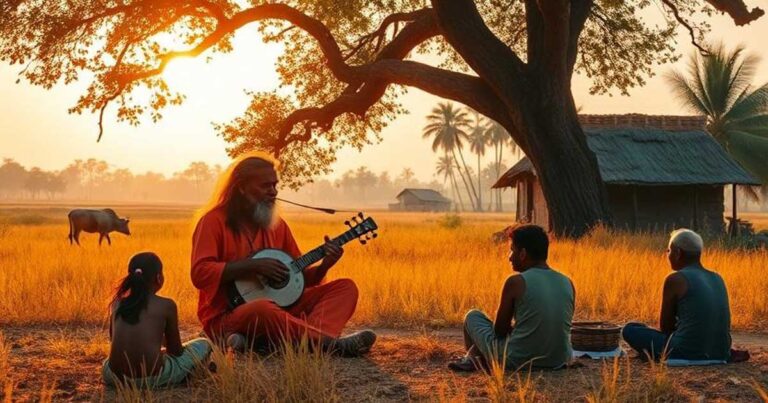India’s essence lies in its unmatched diversity — a cultural mosaic shaped by centuries of tradition, stories, and artistic expression. Folk culture and tradition are not relics of the past; they are living, breathing expressions of our identity, values, and collective memory. They carry within them the heartbeat of generations.
Songs, Dances & Tales: The Spirit of Folk Culture
When we think of folk culture, the sound of Baul music, the rhythm of tribal dance, and the echo of epic tales from the Ramayana or Mahabharata rise in our minds. From the soulful Baul singers of Bengal to the poetic Bhojpuri biraha, folk expressions are not just entertainment—they are emotional mirrors of society, telling stories of love, struggle, wisdom, and the human condition.
📈 Promote your Business
🕒 1st Month FREE + Lifetime Plan Available!
Festivals and Fairs: Where Tradition Comes Alive
In every state, local festivals breathe life into folk traditions. Whether it’s Poila Boishakh in Bengal, Gudi Padwa in Maharashtra, or Lohri in Punjab—each festival carries a world of rituals, songs, crafts, and traditional food. Rural fairs are treasure troves of folk music, handcrafted art, indigenous games, and living history.
Customs and Rituals: The Threads of Belief
From birth ceremonies to marriage and death, folk traditions shape every significant milestone in life. The intricate shad rituals in Bengal, the vibrant baraat processions in North India, the sacred songs sung at village births—all reflect deep-rooted belief systems and community cohesion passed through generations.
Tradition in the Modern World: Harmony, Not Conflict
Some assume that modernity clashes with folk tradition. But in truth, there is harmony. Social media, digital platforms, and storytelling apps have opened new doors. An old tribal song or forgotten tale from a remote village can now be shared with the world in seconds. Technology, when used with purpose, helps preserve and celebrate our roots.
Why Preserving Folk Culture Matters
In a rapidly globalizing world, losing touch with folk culture means losing a part of our soul. These traditions connect us to our ancestry, instill a sense of belonging, and remind us of our humanity. They are not just heritage—they are emotional, social, and spiritual lifelines.
Conclusion
Folk culture and tradition are not just cultural ornaments—they are living testimonies of who we are. Protecting them is not about resisting change; it is about cherishing identity. By living and sharing these traditions daily, we give our past a future.
Frequently Asked Questions
What is folk culture?
Folk culture is the traditional knowledge, rituals, stories, music, and art passed down through generations within communities.
How is folk tradition different from classical heritage?
Folk tradition is rooted in local community life, often orally transmitted and community-based, while classical heritage is usually more formal and scholarly.
Why is it important to preserve folk culture?
Preserving folk culture helps us retain our identity, fosters diversity, and provides insight into human history and emotions.
Is folk culture only found in villages?
No. While it thrives in rural areas, elements of folk culture exist in urban spaces, adapted to modern life.

Your comment will appear immediately after submission.